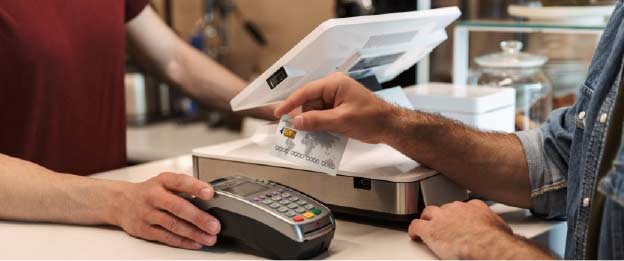
Point-to-Point Encryption vs Hosted Order Page which is right for you?
March 11, 2023
EVO Payments Partners with AvantCom Payments Corporation
April 7, 2023What is tokenization?
Tokenization in Oracle E-Business Suite is the process of removing credit card numbers and other sensitive data from the payment system and replacing them with a unique identifier called a token. The original card number is stored in a secure vault, and only the token is transmitted during a transaction. Tokenization keeps unsecured cardholder data and other personal data secure and prevents it from entering enterprise systems, including ERP, CRM, legacy applications, and eCommerce sites.
Tokenization differs from encryption, which is another method of obscuring card data. Encryption uses a mathematical algorithm to transform card data into a ciphertext that can only be decrypted with a key. Encryption protects data in transit, but can still be hacked if the key is stolen or cracked. Tokenization protects data at rest by removing it from the merchant’s environment altogether. Tokenization also preserves the format of the original card number, which makes it easier to integrate with existing payment systems.
How credit card tokenization works
Credit card tokenization involves two main steps: generating and storing tokens and using tokens for transactions.
Generating and storing tokens
To generate a token, the cardholder data is sent to the tokenization service and verified. The tokenization service uses a secure algorithm to generate a unique string that represents the cardholder’s personal account number (PAN). The tokenization service then stores the token and the cardholder data in a secure vault and sends the token back to the application.
Using tokens for transactions
To use a token for a transaction, the application sends the token to the payment gateway, instead of the cardholder data. The gateway then forwards the token to the tokenization service, which retrieves the corresponding cardholder data from its vault and sends it back to the payment processor or the acquirer. The payment processor or the acquirer then completes the transaction using the cardholder data.
Credit card tokenization offers several benefits, including:
- Reduced risk of data breaches and fraud: By replacing sensitive credit card information with a unique token, businesses can reduce their risk of data breaches and fraud. Even if a token is stolen, it is useless to a thief without the original data.
- Simplified PCI compliance: Tokenization can help businesses meet the requirements of the Payment Card Industry Data Security Standard (PCI DSS) by reducing the amount of sensitive data they store and process.
- Improved customer trust: Customers are more likely to trust businesses that take steps to protect their sensitive information. By using credit card tokenization, businesses can demonstrate their commitment to security and earn their customers’ trust.
Conclusion
Tokenization is one of the best ways to secure credit card transactions and protect customer data. By using tokenization, merchants can reduce their liability, improve their efficiency, and increase their sales. Customers also benefit from tokenization by enjoying a safer and smoother shopping experience

